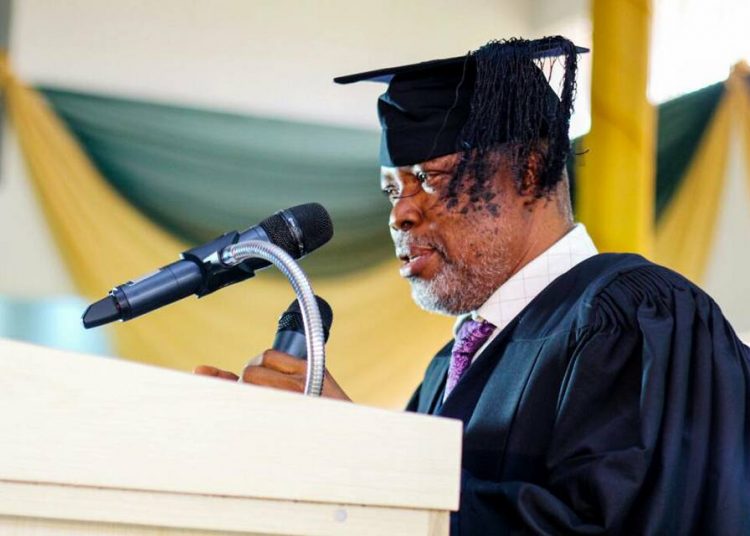A renowned Professor of International Relations, Professor Alade Fawole has described the wearing of academic robes as “one of the most bastardized of the university culture today”.
Professor Fawole, a former member of the Governing Council of ObafemiAwolowo University, Ife, made this assertion while delivering the first pre-matriculation lecture at the Technical University, Ibadan recently.
In the lecture titled “Symbols, Symbolisms and The University Culture”, Professor Fawole observed that “nursery and primary schools, even artisans and fashion designers have adopted the same mode of dressing for their so-called graduation ceremonies”. While accentuating that academic robes should be worn with respect for the ceremony, the lecturer pointed out that “it is not uncommon today to see graduands showing up at convocation ceremonies poorly or improperly robed or not even robed at all; i.e not showing the proper respect for the integrity and solemnity of the ceremony”.
Continuing, he affirmed that “it is the lack of proper understanding and appreciation of the critical essence of the sacred practices and solemn ceremonies by current generation of young scholars that are responsible for their fading significance”. He noted that nowadays, some of such ceremonies are merely being enacted mechanically without due reverence. Teachers and students merely go through the rites more to fulfill all righteousness than for the understanding of their symbolic importance.
As standard bearers, Fawole charged the administration, lecturers and students of The Technical University, Ibadan to be mindful of what they want the University to be known for and how they want it to be perceived in the future.
The lecture, the first of its kind in the University was meant to both acquaint the students with an understanding of the “University Culture” and also remind and refresh the memories of the lecturers of the university as they teach, instruct, guide and supervise their students.
The Lecturer posited that “Academic Freedom is a major irreducible requirement for a university to function properly and unhindered in order to fulfill its stated mission. He however made it clear to students that academic freedom neither connotes irresponsibility nor is it a license for misbehavior. “Many of today’s younger scholars lack a full understanding of its meaning and import for academic pursuits and thus use it as a license for misbehavior”, he stated.
“No sooner do students take the matriculation oath than they forget it and violate every word of it, engaging in conduct unbecoming of members of a university and likely to bring the institution into disrepute”, he said.
Shedding more light, he explained that academic freedom is the freedom of teachers and scholars to conduct enquiry and communicate ideas without let or hindrance, without censorship or becoming targets of attack, repression, intimidation or even loss of jobs.
He went on to state that “the time-honoured tradition of conferring degrees is being gradually bastardized through the award of honorary degrees to the highest bidders in the society, mostly for pecuniary advantages to institutions whose Vice-Chancellors have turned into executive beggars.
He also observed that government officials, Obas, chiefs and security personnel are increasingly taking prominent positions and almost displacing university professors, members of the university Senate and other scholars at convocation ceremonies which are purely academic ceremonies.
“Unfortunately, it is the high officials of the universities themselves, either out of poor knowledge of university traditions or inordinate pressures from outside political sources that should be held responsible for this ignoble denigration of the university culture”.
Professor Fawole described it as regrettable that “the university as a factory of knowledge production and dissemination is fast losing its very essence; as they are being turned into mere factories for the narrow purpose of churning out manpower to satisfy the market place only”.
He urged the professoriate not to allow the university culture to die “otherwise the present generation of scholars willbequeath a dangerous inheritance to coming generations”. He concluded that “failure to keep and observe these traditions and practices may render the university as we know it in our country to be no more than glorified secondary schools with no unique culture or tradition”.













